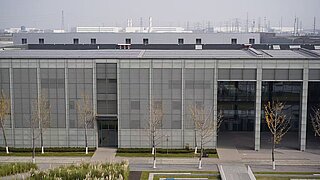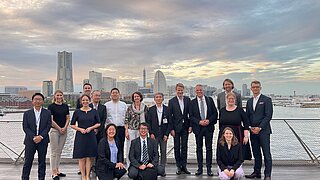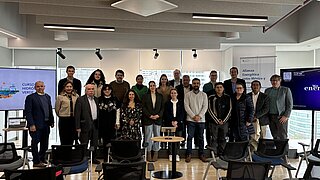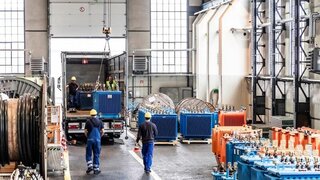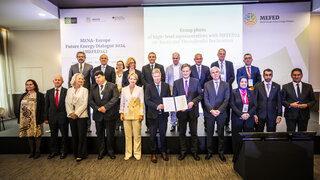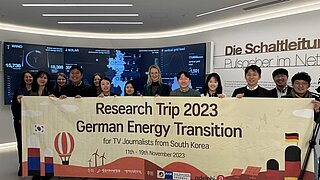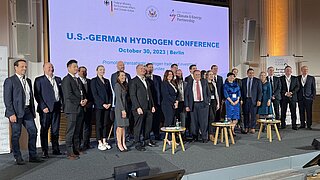Advancing integrated photovoltaik in Chile
Since 2022, the EP has introduced the topic of AgriPV as part of the working group ‘Coal Phase-out, Renewables Phase-In’. The steadily growing interest in the ministry and among other stakeholders was met with pilot project visits, webinars and a study tour to Germany, along with a policy brief with concrete policy recommendations.
Background
Climate variability affects agricultural production in Chile, especially in regions where water availability is critical. To address these vulnerabilities, climate change adaptation and mitigation measures are necessary. In this context, AgriPV systems are an innovative combination of agriculture and solar photovoltaic energy to address the cross-sectoral challenges associated with climate change in the country.
Challenge and Goal
At present, the Chilean regulation is not yet fully adapted to the use of AgriPV because it does not recognise all the advantages of the technology. Experience from other countries should be brought in, e.g. the German DIN SPEC 91434:2021-05.
The main objective should be the protection of farmland and the promotion of the technology where AgriPV can offer its greatest agricultural and socio-economic benefits. For the Chilean context it is proposed to maintain agricultural land use in AgriPV systems for the continuity of agricultural use.
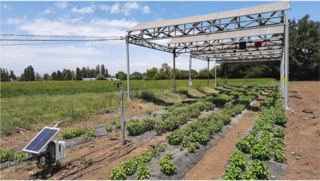
Action taken
In collaboration between Fraunhofer Chile Research and the Universidad de Federico Santa María, a policy brief on agro-photovoltaic systems and their application in Chile was elaborated. This document highlights the importance of this technology and proposes concrete policy recommendations to foster its use in Chile, including legal, financial and collaborative aspects, such as:
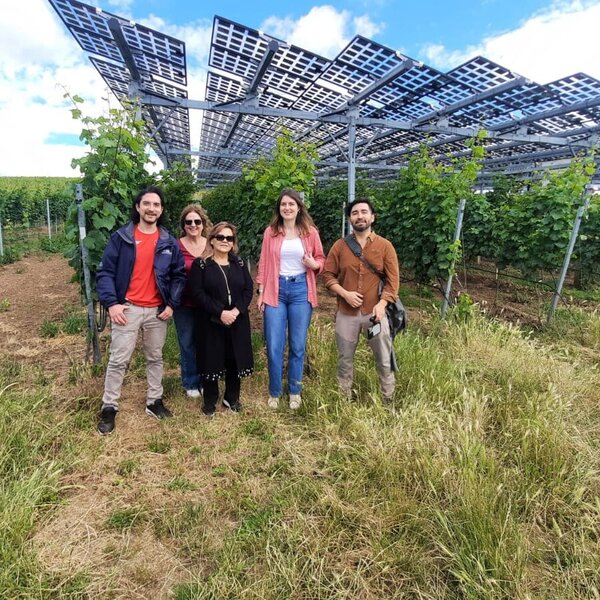
- Adapting the Chilean regulatory framework that allows defining AgriPV and addressing the interaction between food production and renewable energy generation on the same land with agricultural activity, taking international regulations as an example.
- Consider AgriPV in R&D&I calls and national funds managed by entities such as the Ministry of Agriculture and the Ministry of Energy to accelerate the development of AgriPV solutions adapted to the local context.
- Form a working table with multidisciplinary actors, including the Ministry of Environment, Ministry of Agriculture, Ministry of Energy, the National Irrigation Commission, among others, and research entities, to address policy issues and harness the socio-economic benefits of AgriPV technology in a controlled manner with a long-term view.
The activities are supported by the German association BSW Solar.
Impact
The ministry has been sensitized. The National Commission for Irrigation (CNR) has come to the conclusion that irrigation systems with AgriPV should be specifically promoted in future. An interdisciplinary round table is going to implement the recommendations from the policy brief. Agricultural stakeholders were informed at the ‘Expo Agricola’ trade fair (40,000 visitors) at a joint stand with the Ministry and the National Irrigation Commission, and showed great interest. GER is expected to take part in the trade fair next year as a guest country and present GER solutions. Collaboration with Fraunhofer Chile, a university, the GER embassy and other stakeholders was further intensified.
